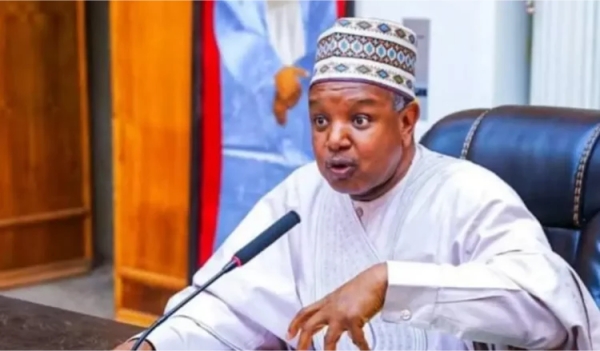The federal government has apologised to Nigerians over the economic pains they go through as a result of the reforms embarked upon by the Bola Ahmed Tinubu administration.
The apology came yesterday from the minister of budget and economic planning, Atiku Bagudu, at a Ministerial Sectoral Update in Abuja
He, however, staunchly defended the policies of the Tinubu-led administration.
Bagudu acknowledged that both foreign exchange rate and inflation figures were still above target levels, putting strain on the economy and the citizens’ pockets.
The minister said, “I apologise for the pains that they (policies) may occasion, but they are necessary.”
The naira has plummeted from around N460 to a dollar to a staggering N1,480 while inflation skyrocketed to 33.69 percent as of April 2024, up from 22.22 percent a year prior.
Despite the economic crisis, the minister insisted the Tinubu administration’s “Renewed Hope Agenda” centered around eight priority areas was on the right track to spur growth in the economy.
“Is our strategy right? Absolutely. We believe our strategy is right, but it requires occasional calibration,” Bagudu asserted.
He argued that restoring macroeconomic stability was crucial to attract investment and generate revenues to address underinvestment in sectors such as security, education and social welfare.
The minister portrayed the current economic challenges as pains accompanying an overdue economic restructuring.
“Nothing we do can solve the problem of underinvestment without restoring a macro-economy that can stimulate investment,” he said.
Meanwhile, the secretary to the government of the federation (SGF), Senator George Akume, has said the current administration has made significant strides in reviving the economy and implementing social programmes to lift the citizens during its first year in office.
Delivering the administration’s one-year progress report at a ministerial sectoral updates session yesterday, Akume highlighted Tinubu’s efforts to unleash Nigeria’s economic potential through major reforms.
“This administration has implemented significant economic reforms aimed at stabilising our economy and fostering sustainable growth,” Akume said.
He pointed to policies that have attracted foreign investment and spurred job creation across various sectors.
According to him, a major economic move was the dismantling of monopolistic control over electricity through the 2023 Electricity Law, allowing states, corporations and individuals to generate, distribute and transmit power.
On the fiscal front, he said the removal of the contentious fuel subsidy was hailed as a “challenging but necessary” step to curb corruption, inefficiency and reduce the annual fiscal burden on the government.
The SGF said infrastructure development has been another key focus area, with the completion of extensive road networks, improved rail systems and modernisation of ports to facilitate trade and connectivity.
Alongside economic measures, Akume emphasised the administration’s people-focused policies through an array of social intervention programmes targeting poverty alleviation and empowerment of vulnerable groups.
“These initiatives have provided financial assistance, skills acquisition opportunities and improved access to essential services,” he explained.
The SGF said investments have also been channelled into healthcare through new facilities and educational reforms to boost human capital development.
However, Akume admitted the first year had its challenges from various angles. But he commended President Tinubu for his “calm, unwavering commitment and resilience” in serving Nigerians with diligence.
Moving forward, the administration remains focused on implementing its “Renewed Hope Agenda” centered on economic revitalization, social inclusion and infrastructural progress for the betterment of all Nigerians, Akume stated.
He called for collective efforts towards unity, peace and realizing Nigeria’s full potential through the government’s vision and policies.
Latest News

